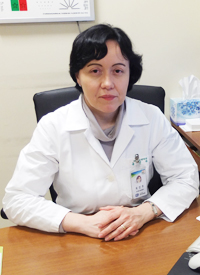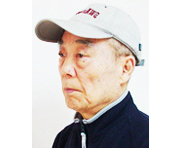Ok-wonder woman of Seoul St. Mary’s Hospital

Ok Jin-ju will answer your email inquiries about anything from catching a cold to having heart surgery, make sure you fill out any necessary paperwork, and nag other doctors to get you an appointment. The director of the International Health Center at Seoul St. Mary’s Hospital takes every opportunity to help her patients.
The family doctor trained in France and runs the department that takes care of foreigners who come to Korea for advance medical services as well as expats currently living here. Her team consists of four nurses fluent in English, one Korean-Japanese nurse and a Russian coordinator with a medical degree.
“With aggressive marketing, Korean healthcare services can expand their patient base beyond neighboring countries to North America and Europe because there is an unmet need for timely medical services,” Ok told The Korea Times.
Recalling her days at Lille 2 University of Health and Law in Paris she said; “I am sure things have changed but I still hear from my French patients that getting an MRI scan can take months on a waiting list. In Korean hospitals, things get done – fast and they get done well.”
The center coordinates all steps from the moment a patient arrives. The staff accompanies the patient to consultations and medical procedures. Last year, 3250 patients visited from the United States China, Russia, France and Kazakhstan and Ok took care of them all. Koreans living in America go through the 1332-bed medical center’s LA office which opened in 2010. “We get a very diverse set of cases. For example, bone marrow transplants are not available in Mongolia, so patients come to us. Some Russian patients frequent the breast cancer clinics, urology, cardiology and internal medicine departments,” she said.
For French-speaking patients in need of counseling Ok uses health information technology to its fullest advantage. “Language barriers can really affect psychiatric consultations. So I coordinate for a patient to have a video chat with a physiatrist in France. Then I translate the doctor’s notes so the Korean doctor can refer to them,” Ok said.
In Korea, the French Embassy, the Swiss Embassy and Air France-KLM have appointed her as their official doctor.
It still remains a challenge to promote the Korean healthcare system. “Outside, surprisingly many people think of us as a war-torn country and imagine that our medical services are only slightly better than what is available in, say, Africa,” Ok said.
In order to attract patients from overseas, many large hospitals such as Seoul St. Mary’s have achieved accreditation from the Joint Commission International (JCI), an American agency. Fortunately, as of April 25, the Korea Institute of Healthcare Accreditation (KOIHA) acquired International Society for Quality in Health Care (ISQua) recognition. This means Korean standards for medical facilities is on par with JCI as well as the Australian Council on Healthcare Standard, and Haute Autorite de Sante (France).
Medical excellence alone will only get you so far. Ok stresses cultural sensitivity to the center’s staff. Privacy aspects can cause the most friction between cultures in a hospital. Some patients dislike nurses mentioning medical procedures in a waiting room.
“I don’t want patients to undervalue the medical quality of Korean hospitals because their experiences are biased by small conflicts,” Ok said. “You also have to understand that it is quite frightening to get sick in a foreign country.”
In addition to providing primary care, Ok pursues her interest in travel medicine which especially benefits the expat community. “A significant number of my patients, especially employees at embassies, travel around the continent during their stay,” Ok said. She prescribes necessary vaccines and medication and educates people about health risks. As a member of the International Society of Travel Medicine, she tries to attend conferences as often as possible. “You have to be up-to-date in this field. Malaria, for example, keeps developing drug resistance.”
Though she is a spokeswoman for the promotion of Korea’s advanced medical services, Ok ranks routine check-ups as top priority. “Early screening is crucial and many maladies are latent. For example, myopia can develop into retinal detachment.” A basic examination can spot the risk, and a simple laser treatment can prevent peeling of the retina. <Korea Times/Noh Hyun-gi>
news@theasian.asia




